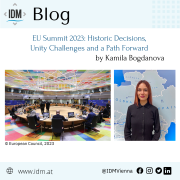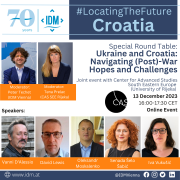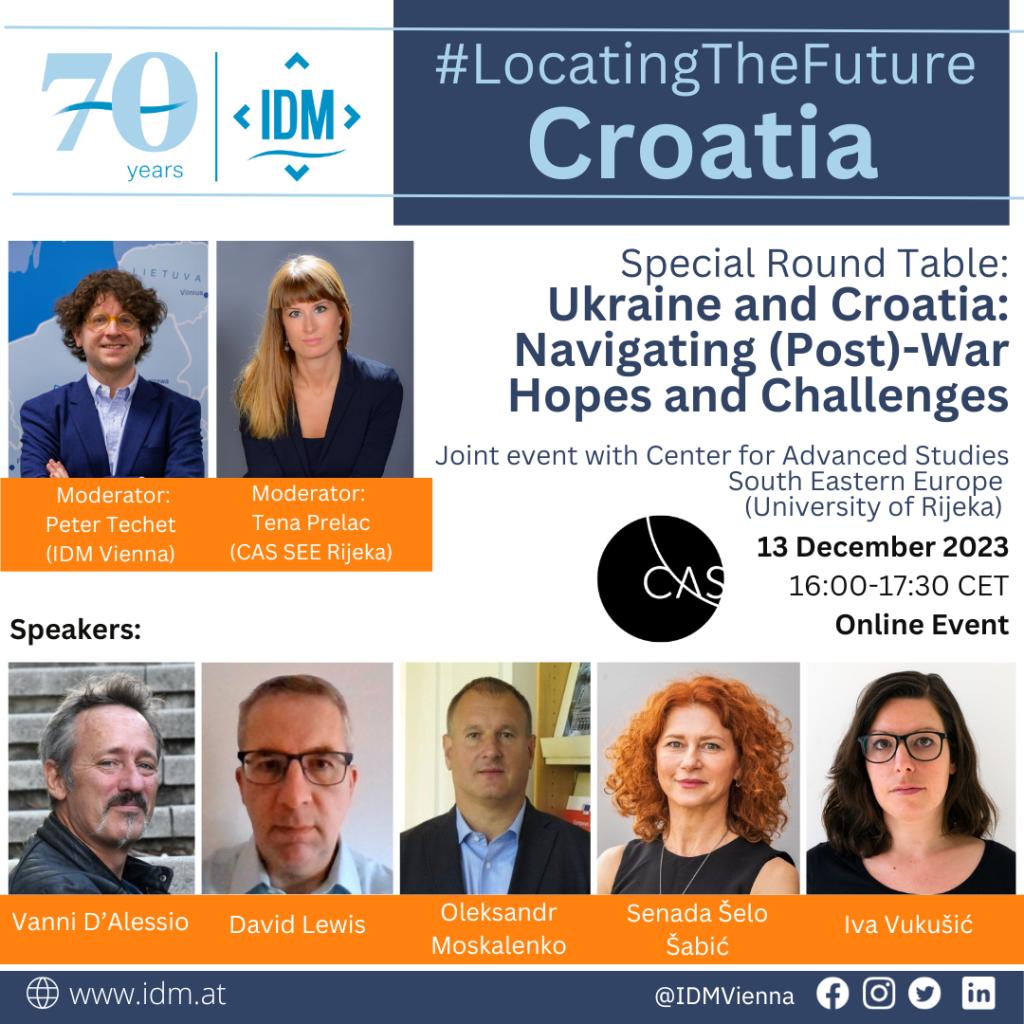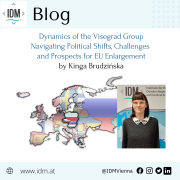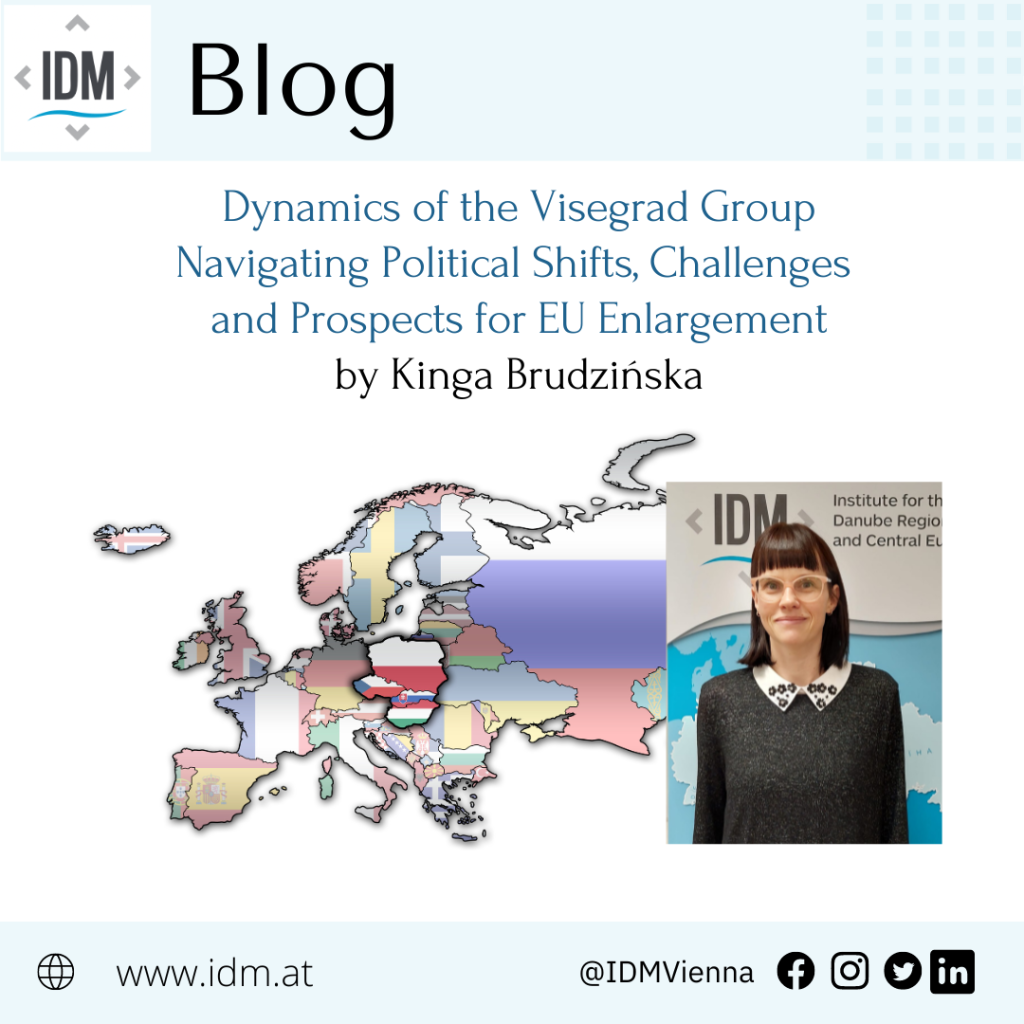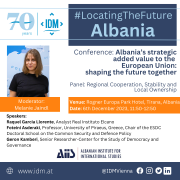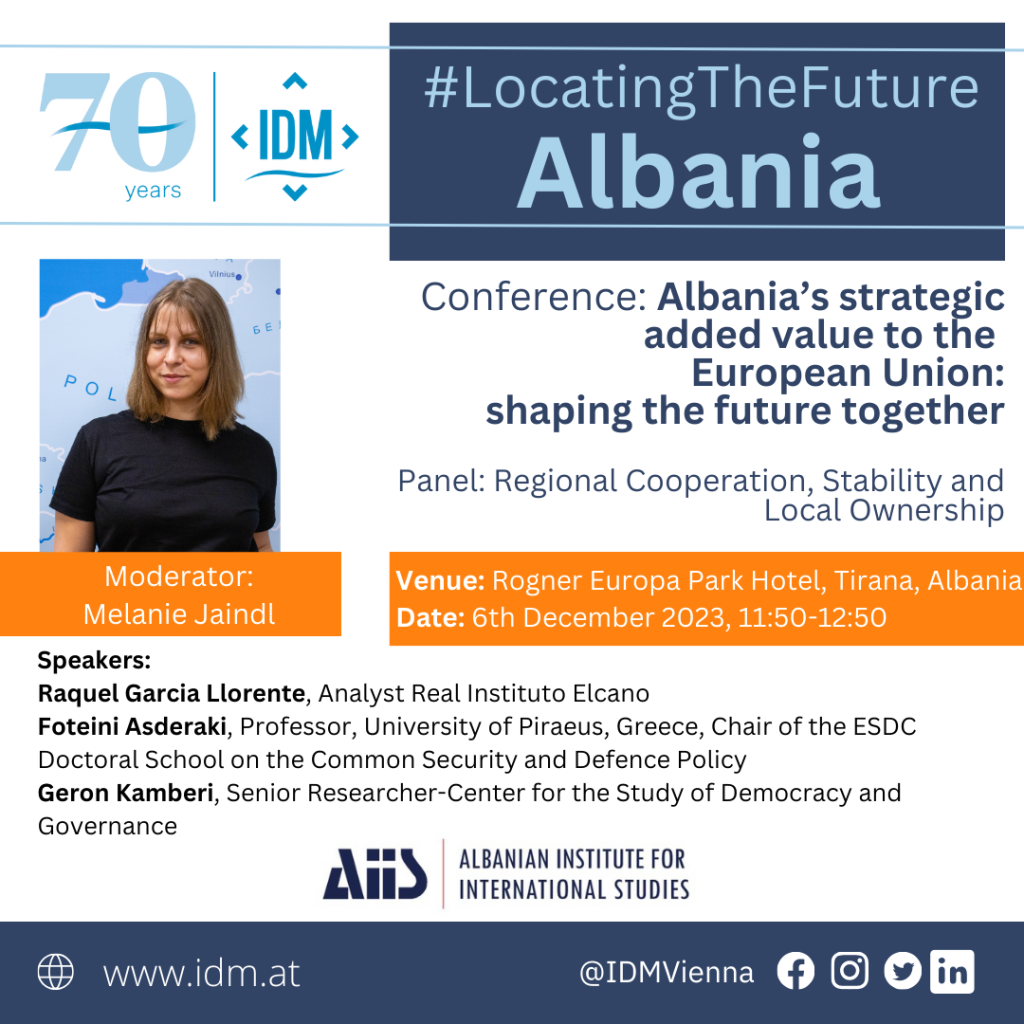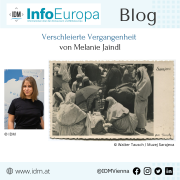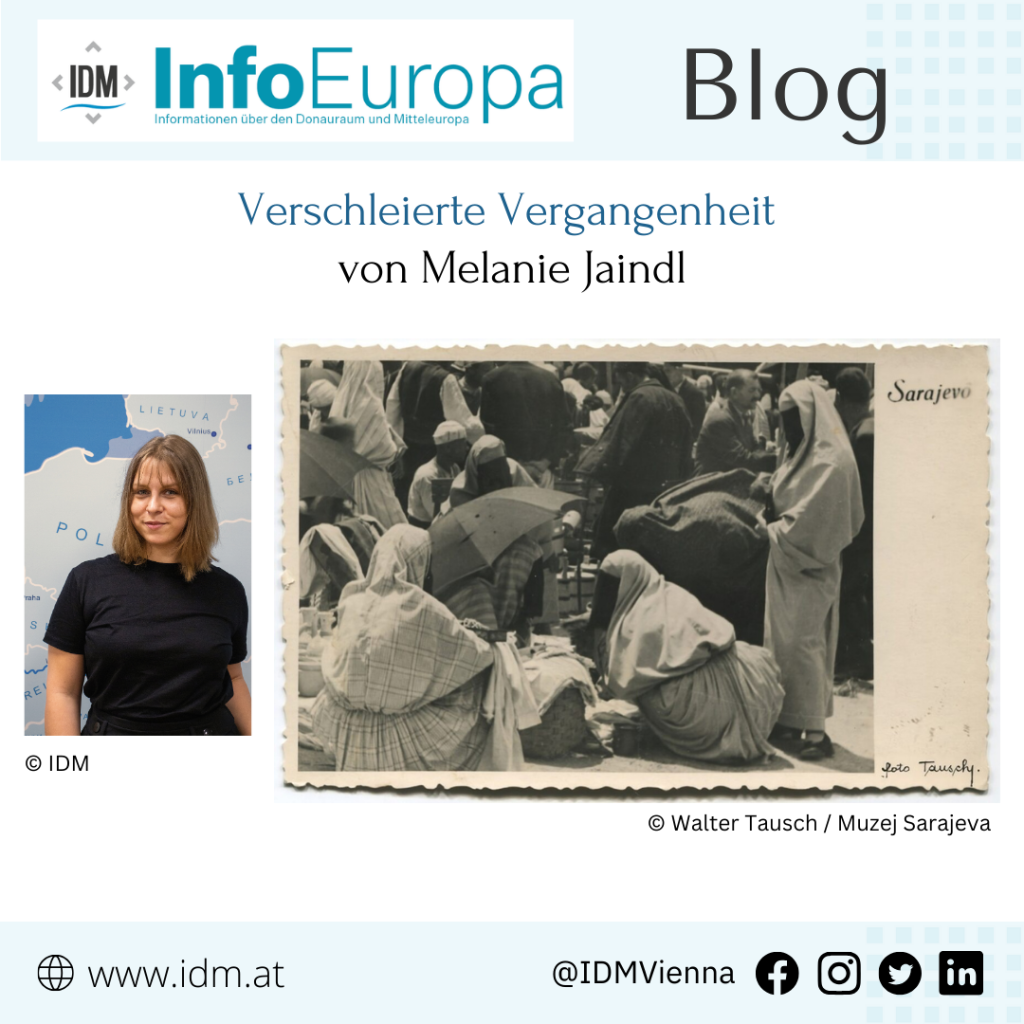EU Summit 2023: Historic Decisions, Unity Challenges and a Path Forward
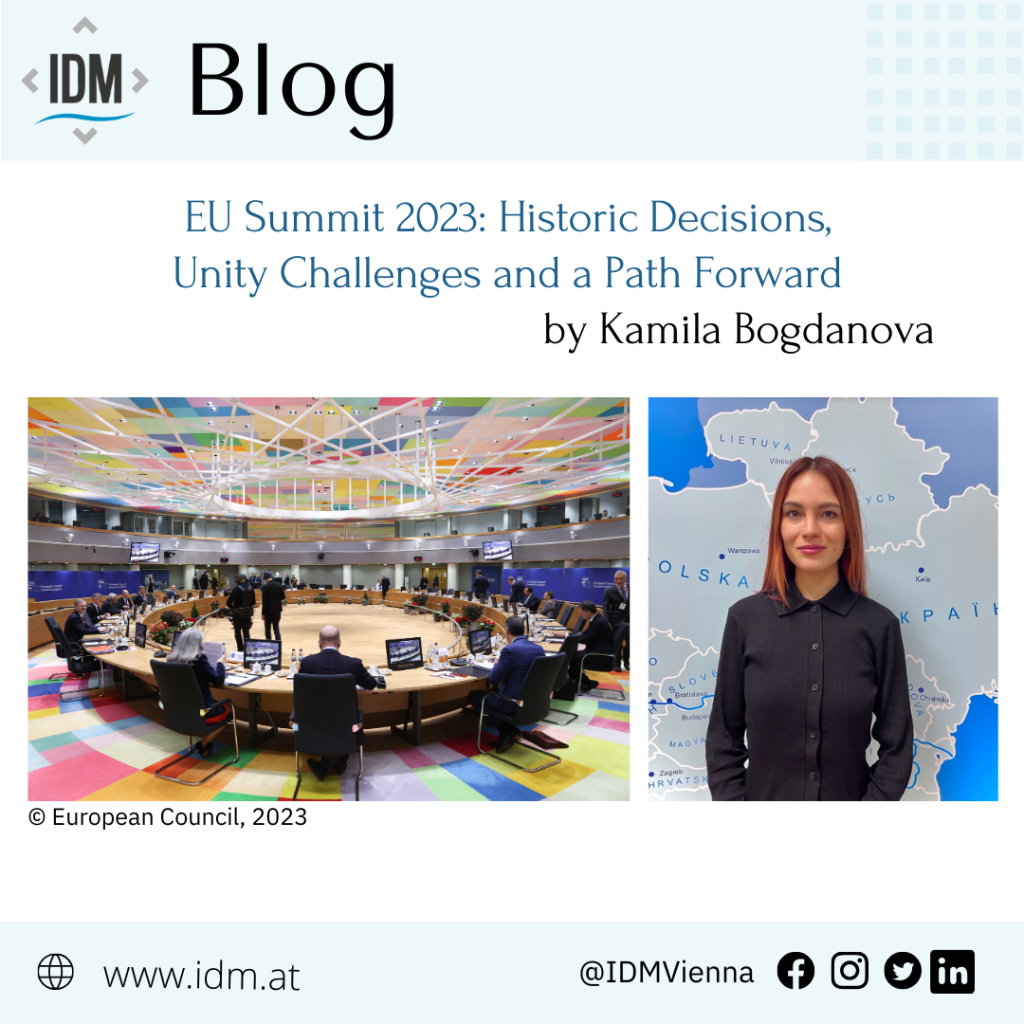
On Friday 15 December, the EU summit was concluded, characterized by journalists and experts as “historic.” The agenda for the final meeting of 2023 covered several “divisive” issues, including the situation in the Gaza Strip, challenges of Islamophobia and anti-Semitism in Europe, the twelfth package of sanctions against Russia, and, notably, the initiation of negotiations for the EU’s enlargement, including talks with Ukraine.
The last agenda emerged as the most significant test of European unity in the past year. While Europe ultimately succeeded in passing this test, affirming Kyiv’s European future, the symbolic decision came at a considerable cost for Brussels. It also failed to reach unity on a more pragmatic matter – the approval of the next financial assistance package for Ukraine.
The EU summit on 14–15 December featured two focal points concerning Ukraine: the commencement of negotiations for the country’s EU accession and the allocation of a 50-billion-euro tranche for Kyiv over the next four years. Ukraine had attained candidate status for EU membership in the summer of 2022, and in early November 2023, the European Commission recommended initiating accession talks with Ukraine, Moldova, and Bosnia and Herzegovina. This recommendation awaited approval from the European Council at the summit. Although this represented only the fourth of nine formal stages required for EU accession, the principled stance of EU member countries on Ukraine’s admission held considerable importance.
Despite encountering challenges, the EU demonstrated unity on this critical issue, propelling Ukraine to the next stage in its journey towards EU membership. However, the path to this “historic decision” required Brussels to once again make concessions to Viktor Orbán, Hungary’s Prime Minister. Notably, voting on the Ukraine matter proceeded without Orbán, as German Chancellor Olaf Scholz suggested that he should “go for a coffee”, leading to unanimous approval by the remaining 26 participants.
Nevertheless, Orbán wielded his veto power in the subsequent vote, focusing on the second Ukrainian issue – financial aid. The preparation and trajectory of this summit revealed that Hungary alone was not responsible for eroding EU unity in supporting Ukraine. Slovakia, under the leadership of right-wing conservative politician Robert Fico, and even Austria, attempting to navigate economic relations between Moscow and Brussels, also contributed to this trend.
Hungary’s Defiance and EU Leverage Tactics
Anticipations of challenges with Hungary’s stance were evident well before the “historic summit.” The ongoing conflict between Brussels and Budapest spans almost a decade, originating with Viktor Orbán’s establishment of an authoritarian regime in Hungary. EU leaders have expressed concern over the erosion of the rule of law, the diminishing press freedom, and pervasive corruption in the country. In an attempt to guide Hungary back to the democratic path, the EU has begun employing financial measures.
Specifically, Brussels opted to freeze previously allocated funding from European funds to Hungary, employing a tactic frequently used in the past, such as in the case of Poland when Prawo i Sprawiedliwość (Law and Justice) party held power and was steering the country on an authoritarian trajectory.
However, these leverage tactics, successful in some instances, currently face resistance in Hungary. Ahead of the summit, Hungary enacted a new law on the “protection of national sovereignty.” Under its provisions, a dedicated service is being established to investigate “foreign interference” in Hungary’s political sphere. Further details about this legislation can be found in an episode of the IDM Short Insights series.
Viktor Orbán himself has chosen to counter the EU using what Brussels perceives as blackmail, deploying leverage tactics to resist the union’s influence. Since the onset of Russia’s war in Ukraine, Budapest has consistently impeded various decisions that were averse to Kremlin interests, spanning from individual anti-Russian sanctions to the provision of military or financial assistance to Kyiv.
Austrian and Slovak Dilemmas: Balkan Ambitions and Disputes with Kyiv
A week preceding the summit, not only Hungary but also Slovakia and Austria jointly signalled their reluctance to endorse the opening of negotiations for Ukraine’s EU accession. While the support for Budapest’s veto on financial aid for Kyiv was expected from Bratislava, it came as more of a surprise coming from Vienna.
In Slovakia, Robert Fico, representing the social conservative party SMER SSD (Direction – Social Democracy), assumed power in mid-autumn. During the election campaign, Fico gained support from voters disappointed by prolonged political instability, post-coronavirus economic challenges, and the energy crisis resulting from the conflict in Ukraine. Proposing to cease aid to Ukraine and positioning himself as a mediator in peace talks with Russia, Fico maintained a consistent stance by refusing to supply weapons to Ukraine and supporting Viktor Orbán at the summit.
Austria, like Hungary, possesses its own negotiation points with both Brussels and Kyiv. Among Austria’s interests are the Balkans, where historical influence and geographical location have played a significant role. Austria has consistently advocated for the swift accession of Western Balkan countries, primarily Bosnia and Herzegovina, Montenegro, Albania and Serbia to the EU.
In November this year, the European Commission recommended initiating accession negotiations not only with Ukraine and Moldova but also with Bosnia and Herzegovina. The head of the Austrian Foreign Ministry cautioned against scrutinizing the Western Balkans too strictly while adopting a more optimistic view of Ukraine. Simultaneously, Brussels displayed a lack of urgency in commencing accession negotiations with Bosnia and Herzegovina, citing a slow pace of necessary reforms for EU membership.
Austria faced a disagreement with Kyiv, specifically concerning Raiffeisenbank. In the lead-up to the December summit, Vienna replicated Hungary’s actions by demanding the exclusion of Raiffeisenbank from Ukraine’s list of war sponsors. The bank’s inclusion into this list was based on its continued operations in Russia. Similarly, Hungary successfully secured the removal of its OTP bank from the list of war sponsors in exchange for supporting another sanctions package against Russia.
Despite Austria’s approval of the 12th EU sanctions package against Russia, substantial progress at the summit on Bosnia and Herzegovina’s EU accession was elusive. Unlike Ukraine and Moldova, the summit opted not to initiate negotiations with Sarajevo. Nevertheless, Vienna’s stance was considered, with the European Commission recommending to compile a report on Bosnia and Herzegovina’s reform progress by March 2024, paving the way for a subsequent decision.
The EU’s Diplomatic Manoeuvres
The EU was aware of the threat of two important decisions to help Ukraine being blocked and tried to stop a possible political crisis in advance. On the morning of the summit’s first day, a confidential meeting took place involving French President Emmanuel Macron, German Chancellor Olaf Scholz, European Council President Charles Michel, and Hungarian Prime Minister Viktor Orbán. This gathering followed a late-evening meeting on the eve of the summit, featuring Michel, Macron, Scholz, and European Commission President Ursula von der Leyen. The goal for this meeting was to formulate a unified stance for negotiations with countries intending to impede decisions.
Despite the EU’s extensive efforts to foster unity in the vote, including the unfreezing of 10.2 billion euros for Budapest just before the summit, Hungary persisted in vetoing the decision regarding financial assistance to Ukraine.
Ukraine ultimately found itself as a “hostage” to the three Central European states, although it acquiesced to many of the EU’s demands. Notably, Kyiv amended the law on national minorities twice, substantially enhancing their rights – such as allowing national minorities to display banners in their own languages. This had been a longstanding demand from Budapest, given the significant Hungarian diaspora in the Transcarpathian region of Ukraine. The latest amendments were enacted just before the summit.
The EU’s Dilemma: Balancing Unity, Opposition, and Reform at the Historic Summit
At first glance, the “historic summit” seemingly demonstrated Europe’s ability to push through pivotal decisions despite resistance from Hungary, Slovakia and Austria. Moreover, representatives of the general political community in Europe adopted a more assertive stance. The primary political groups in the European Parliament – the European People’s Party, the Social Democrats, Renew and the Greens – staunchly opposed offering new concessions to Orbán in exchange for support for Ukraine. Together with the Czech Republic, they advocated for exploring alternative support mechanisms to avoid succumbing to Orbán’s blackmail.
However, this scenario does not suggest a systematic approach to the problem, as far-right forces and Eurosceptics in power across various EU countries retain the capacity to obstruct decision-making. With the backdrop of war and a challenging economic situation, this places the EU at a significant disadvantage compared to potential opponents.
Nonetheless, the EU has an avenue for resolution. On the summit’s eve, the European Parliament initiated a comprehensive reform process, aiming to diminish, if not entirely eliminate, a country’s ability to exploit the veto as a tool of blackmail. Although this process is complicated and necessitates the involvement of numerous stakeholders, if enacted, it is unlikely to materialize in the immediate future.
Kamila Bogdanova – a student in the Master’s program in International Relations at Masaryk University (Brno, Czechia) and a current trainee at the IDM (September to January 2024). She holds a BA degree in International Area Studies from Charles University (Prague, Czechia).

